
Kabul: The Heart of Afghanistan
Kabul, the capital of Afghanistan, is a city rich in history and culture. Nestled between rugged mountains, Kabul offers a unique blend of ancient traditions and modern influences. As you walk through the bustling streets, you'll encounter vibrant markets, historical landmarks, and warm, welcoming locals. Visit the Kabul Museum to discover artifacts dating back thousands of years, reflecting the city's storied past. Explore the stunning Babur's Gardens, a serene oasis filled with lush greenery and beautiful water features, perfect for a relaxing afternoon. Kabul's old city, known as Murad Khani, is a must-see with its narrow alleyways and traditional mud-brick houses. Don't miss the opportunity to visit the Shah-Do Shamshira Mosque, an architectural marvel with its two-story structure and bright yellow façade. For those interested in more recent history, the Soviet War Memorial and the National Gallery of Afghanistan provide deep insights into the country's turbulent past and rich artistic heritage. The city's evolving culinary scene offers a delightful mix of traditional Afghan dishes and international cuisine, ensuring that every meal is an adventure.
Local tips in Kabul
- Dress modestly and be respectful of local customs to ensure a welcoming experience.
- Carry cash, as many places do not accept credit or debit cards.
- Hire a local guide to help navigate the city and provide deeper insights into its history and culture.
- Stay updated on travel advisories and ensure your safety by avoiding certain areas.
- Learn a few basic Dari or Pashto phrases to enhance your interactions with locals.
Neighbourhoods in Kabul
Kabul: The Heart of Afghanistan
Kabul, the capital of Afghanistan, is a city rich in history and culture. Nestled between rugged mountains, Kabul offers a unique blend of ancient traditions and modern influences. As you walk through the bustling streets, you'll encounter vibrant markets, historical landmarks, and warm, welcoming locals. Visit the Kabul Museum to discover artifacts dating back thousands of years, reflecting the city's storied past. Explore the stunning Babur's Gardens, a serene oasis filled with lush greenery and beautiful water features, perfect for a relaxing afternoon. Kabul's old city, known as Murad Khani, is a must-see with its narrow alleyways and traditional mud-brick houses. Don't miss the opportunity to visit the Shah-Do Shamshira Mosque, an architectural marvel with its two-story structure and bright yellow façade. For those interested in more recent history, the Soviet War Memorial and the National Gallery of Afghanistan provide deep insights into the country's turbulent past and rich artistic heritage. The city's evolving culinary scene offers a delightful mix of traditional Afghan dishes and international cuisine, ensuring that every meal is an adventure.
When is the best time to go to Kabul?
Iconic landmarks you can’t miss
Kabul Zoo
Discover Afghan fauna and exotic species at Kabul Zoo, a symbol of resilience and a popular recreational destination in the heart of Kabul.
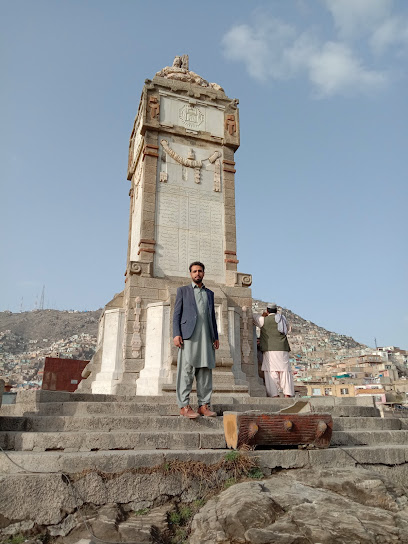
Babur Garden
Explore Bagh-e Babur, Kabul's historical Mughal garden: a serene escape with stunning views, rich history, and architectural beauty.
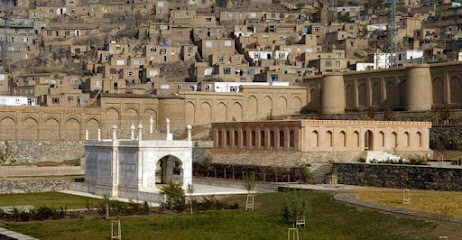
Pul-e Kheshti Mosque
Discover Kabul's largest mosque, a vibrant center of faith and community, showcasing stunning Afghan artistry and resilience through centuries of history.
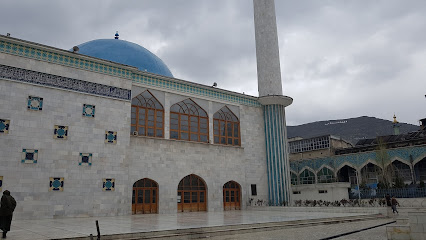
Safi Landmark Hotel
Experience modern comfort and Afghan hospitality at Safi Landmark Hotel, Kabul's centrally located four-star hotel.

DarulAman Palace
Explore Darul Aman Palace in Kabul: A neoclassical masterpiece reborn, symbolizing Afghanistan's enduring spirit and rich history.
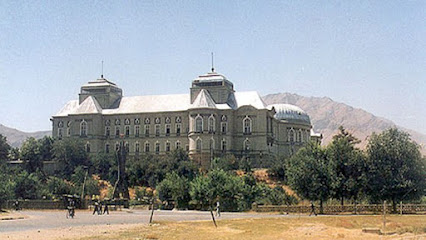
The National Museum of Afghanistan
Discover millennia of Afghan history and cultural heritage at the National Museum of Afghanistan, a symbol of resilience and a treasure trove of ancient artifacts.
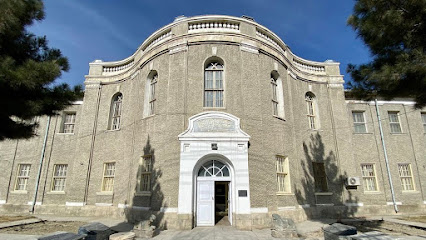
Kabul City Center
Experience modern Kabul at the City Center: shopping, dining, and culture in a vibrant, secure environment. Open daily 8 AM to 6 PM.
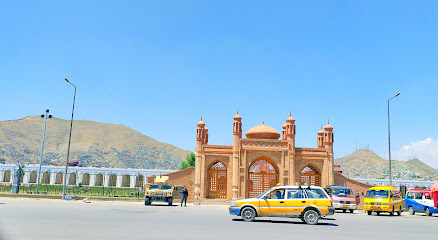
Zohak Village
Experience tranquility and comfort at Zohak Village, your serene escape in the heart of Kabul, blending hospitality with rich cultural exploration.
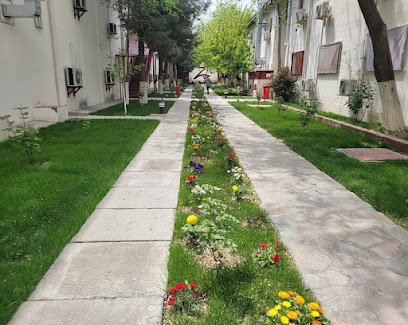
Shah e Du shamshira Mosque
Discover Kabul's Shah e Du Shamshira Mosque: A unique architectural blend of Islamic and European Baroque styles, reflecting Afghanistan's rich history.
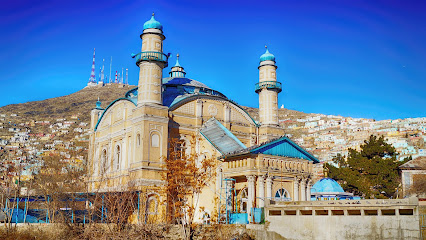
Qargha Reservoir
Discover a serene escape just west of Kabul at Qargha Reservoir, a popular recreational area with boating, dining, and scenic beauty.
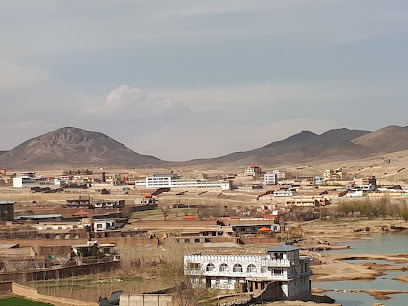
Qale'H-Ye-Balahissar
Explore Qale'H-Ye-Balahissar, Kabul's historic fortress with panoramic views, offering a glimpse into Afghanistan's rich and resilient heritage.
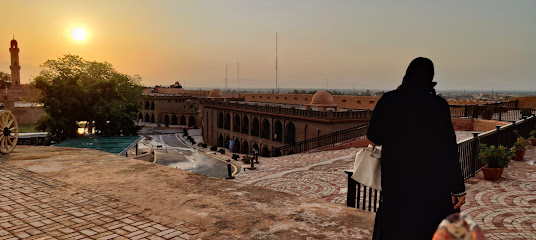
تالار عروسی ماریوت (Marriot Wedding Hall)
Experience Afghan celebrations at Marriot Wedding Hall in Kabul, a blend of modern elegance and traditional culture in the heart of Kart-e-Char.

مسجد جامع سفید زاخیل ها
Discover the White Mosque of Zakhil in Kabul: A serene sanctuary showcasing Islamic architecture and local Afghan traditions in the heart of Karte Naow.
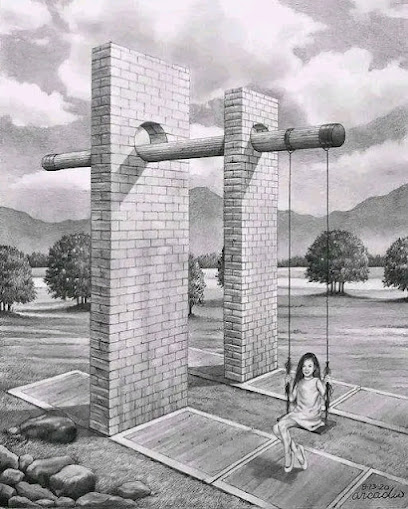
OMAR Mine ERW War Museum
Explore Afghanistan's struggle with landmines at the OMAR Mine ERW War Museum in Kabul, a center for education, awareness, and resilience.
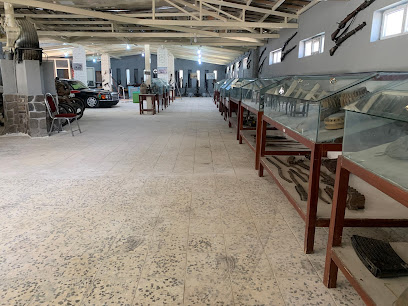
Kabul Fortress
Explore the historic Kabul Fortress, an ancient citadel with a rich history as a royal palace, military stronghold, and focal point in Afghan history.
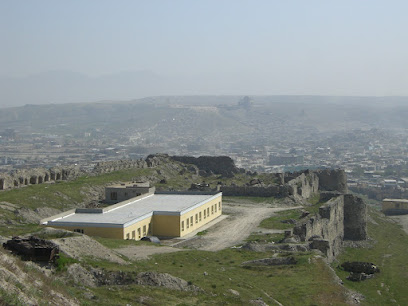
Unmissable attractions to see
Shahr-e Naw Park
Discover a tranquil escape in Kabul's Shahr-e Naw Park, a vibrant green space offering relaxation, recreation, and cultural experiences for all.
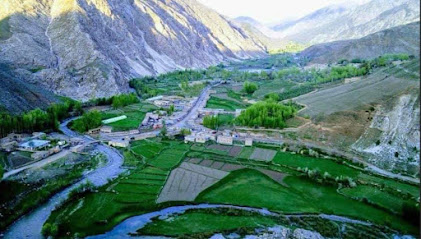
Kabul Zoo
Discover Kabul Zoo, a resilient wildlife sanctuary in the heart of Afghanistan, offering a unique glimpse into the nation's spirit and natural beauty.
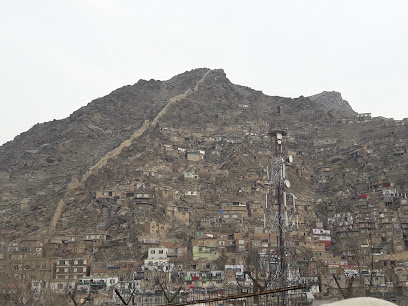
Babur Garden
Explore Kabul's Mughal heritage at Babur's Garden: a peaceful retreat with terraced lawns, historic architecture, and panoramic city views.
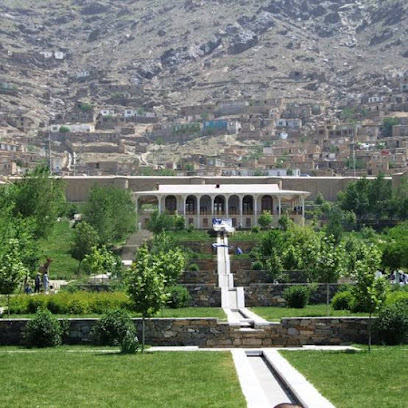
Qargha Lake Park
Escape the bustle of Kabul at Qargha Lake Park: a serene retreat offering boating, picnics, and scenic beauty amidst Afghanistan's natural landscape.
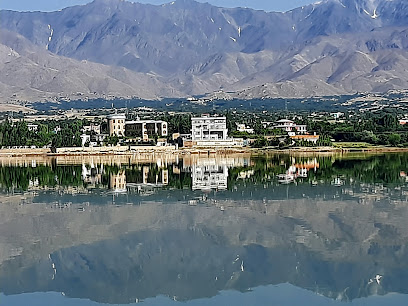
Pul-e Kheshti Mosque
Kabul's largest mosque, featuring a stunning blue dome and intricate Afghan artistry, is a symbol of faith and resilience.
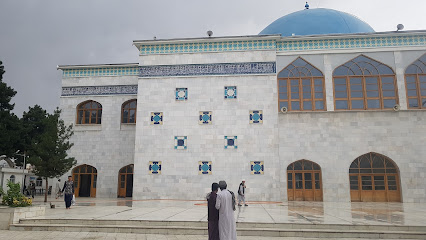
Chehelseton Garden
Discover Chehelseton Garden in Kabul: A historic oasis of tranquility, blending natural beauty with Afghanistan's rich cultural heritage.
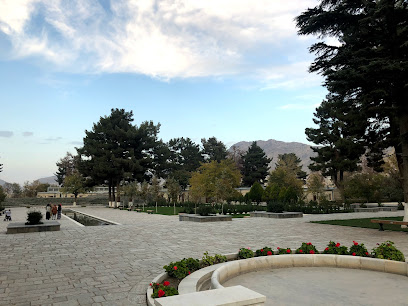
The National Museum of Afghanistan
Explore millennia of Afghan history at the National Museum of Afghanistan, a treasure trove of ancient artifacts from the Silk Road in Kabul.
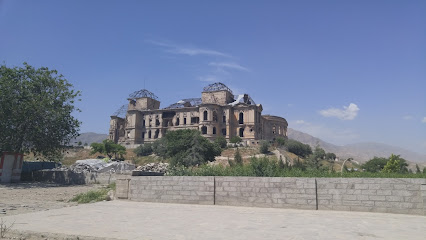
عمارت باغ بالا Baghe Bala Building and pool
Discover Kabul's historic Baghe Bala, a hilltop oasis offering panoramic views, tranquil gardens, and a glimpse into Afghanistan's rich cultural heritage and royal past.
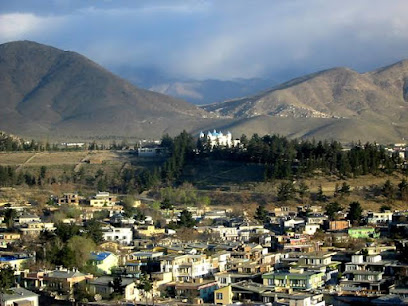
City park
Escape the city bustle at Kabul's City Park: a green haven with gardens, amusement rides, and cultural experiences for everyone.
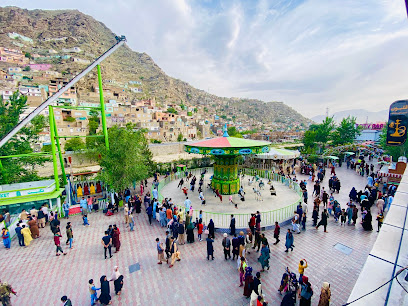
بند برق شاه و عروس
Discover the scenic Shah wa Arus Dam in Kabul: a blend of engineering, natural beauty, and Afghan culture. A tranquil escape awaits!
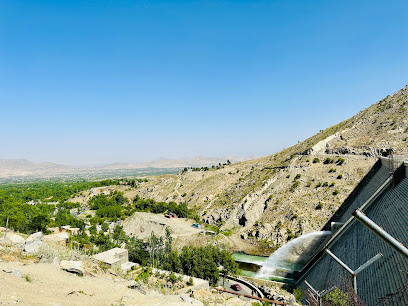
مسجد جامع سفید زاخیل ها
Discover the White Mosque of Zakhil in Kabul: A blend of Islamic architecture and community spirit in the heart of Afghanistan.
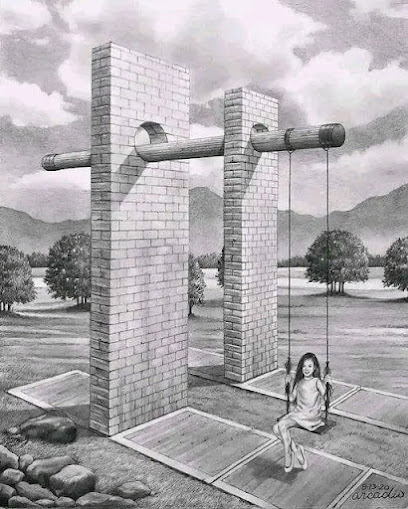
OMAR Mine ERW War Museum
Explore Afghanistan's struggle with landmines at Kabul's OMAR Mine ERW War Museum, a testament to resilience and a center for education and awareness.
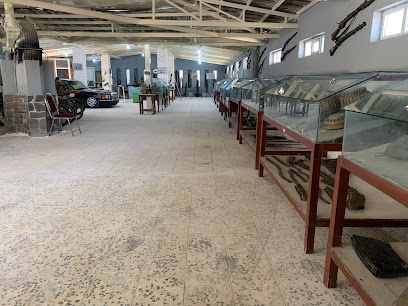
Kabul Fortress
Explore Kabul Fortress, a historic citadel with roots in the 5th century, offering a glimpse into Afghanistan's rich and complex past.
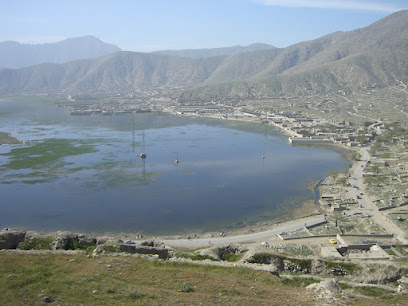
Zarnegar park
Discover Kabul's green heart: a historic park offering tranquility and a glimpse into Afghanistan's rich cultural heritage.
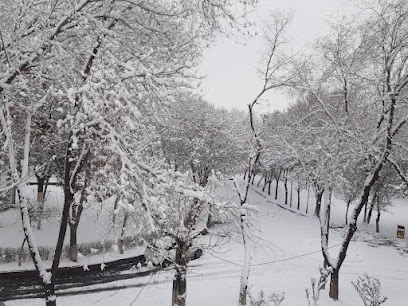
Essential places to dine
Barg Continental Restaurant
Discover the flavors of Afghanistan at Barg Continental Restaurant – where tradition meets taste in the heart of Kabul.
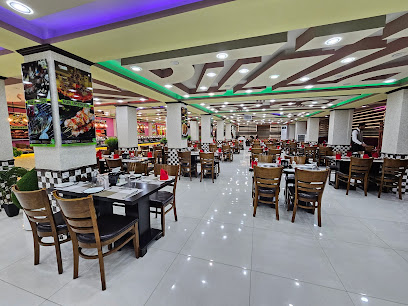
Bukhara Restaurant
Savor authentic Afghan cuisine at Bukhara Restaurant in Kabul—an unforgettable taste of culture and tradition.
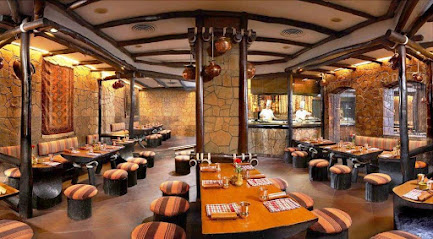
Yummy Fast Food
Experience delicious fast food delights at Yummy Fast Food in Kabul - where local flavors meet international favorites.
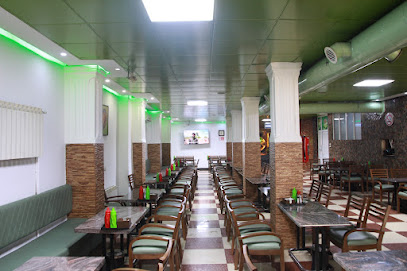
Jumeirah Restaurant Kabul
Experience the best of Afghan cuisine at Jumeirah Restaurant Kabul – where traditional flavors meet modern hospitality.
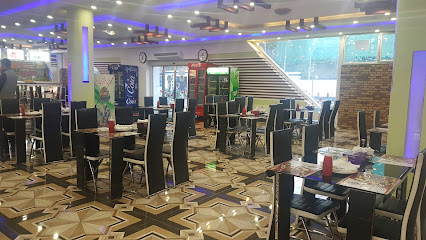
Fask cook, Mr. Food
Experience the best of Afghan cuisine at Mr. Food in Kabul – where local flavors meet international culinary standards.
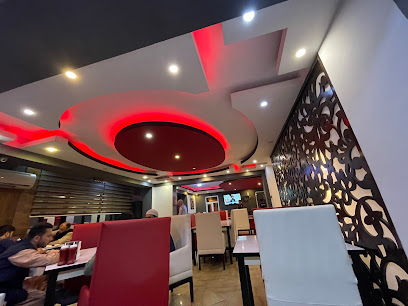
Turkish Family Restaurant & Cafe
Savor authentic Turkish cuisine at the Turkish Family Restaurant & Cafe in Kabul - where every meal is a celebration of flavor and hospitality.
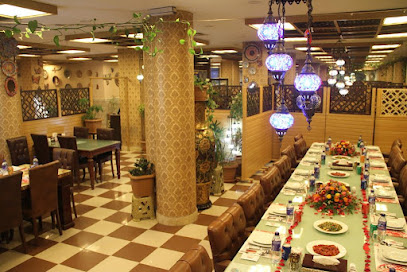
Bukhara Restaurant - Karte 4 Branch
Savor authentic Afghan flavors at Bukhara Restaurant in Karte 4, Kabul - where tradition meets fast food.
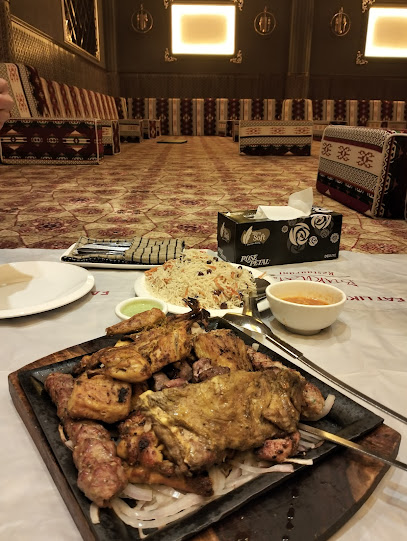
Ziyafat Restaurant
Experience authentic Afghan cuisine at Ziyafat Restaurant in Kabul – a must-visit for food lovers seeking rich flavors and warm hospitality.
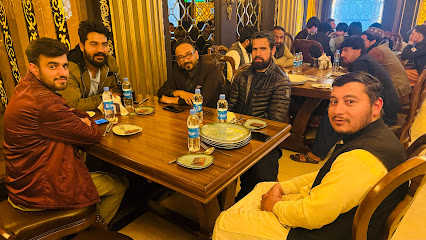
Prime Steakhouse
Discover the finest steaks at Prime Steakhouse in Kabul's Majid Mall - where flavor meets elegance.
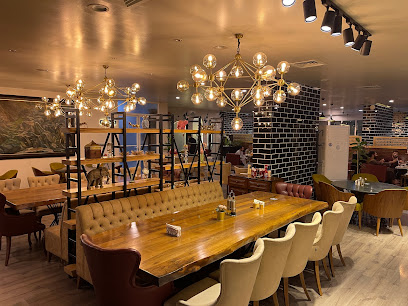
Herat Restaurant
Experience authentic Afghani cuisine at Herat Restaurant in Kabul – a culinary journey through rich flavors and warm hospitality.
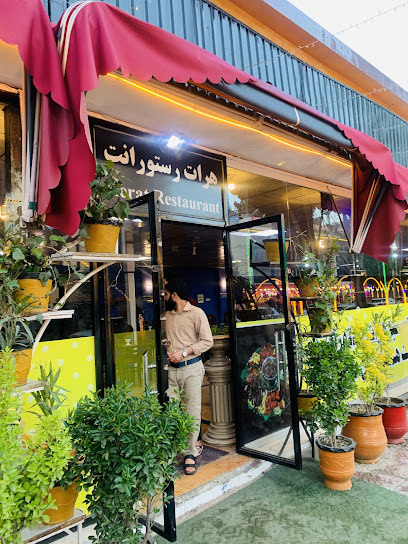
Sufi Mahal Restaurant ( رستورانت صوفی محل )
Savor authentic Afghani cuisine at Sufi Mahal Restaurant in Kabul, where traditional flavors meet warm hospitality.
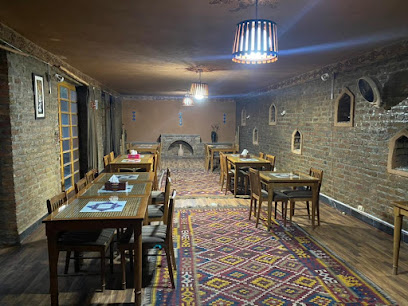
The Kitchen
Experience authentic Afghan cuisine blended with international flavors at The Kitchen in Kabul's vibrant Kart-e-Char district.
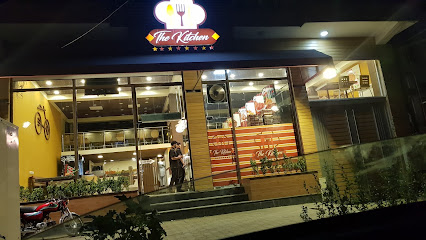
Chinar Restaurant & Café
Discover the flavors of Afghanistan at Chinar Restaurant & Café - where tradition meets modern dining in Kabul.
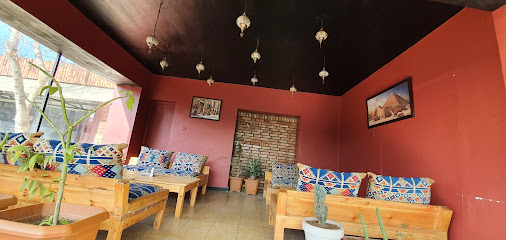
Naseeb Restaurant (رستورانت نصیب)
Discover the essence of Afghan cuisine at Naseeb Restaurant in Kabul – where authentic flavors meet warm hospitality.
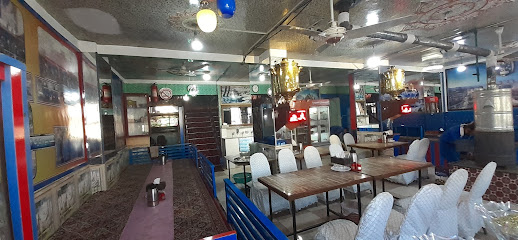
Le Bistro
Experience the rich flavors of Afghanistan at Le Bistro, where traditional meets contemporary in a delightful dining setting.
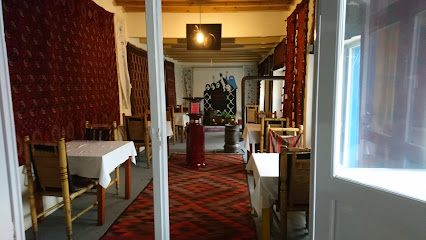
Markets, malls and hidden boutiques
Kabul City Center
Discover the vibrant shopping experience at Kabul City Center, where tradition meets modernity in the heart of Afghanistan's capital.
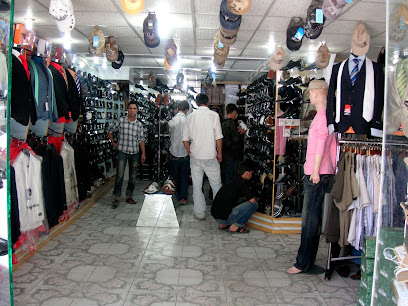
Dawoodzai Shopping Mall
Experience a vibrant shopping atmosphere at Dawoodzai Shopping Mall, Kabul's premier destination for retail, dining, and entertainment.
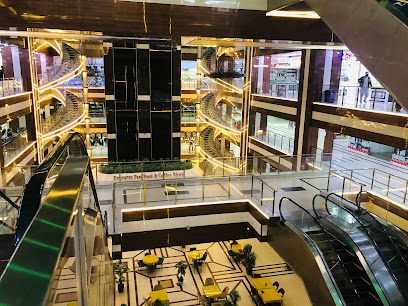
فروشگاه محب زاده
Discover the vibrant culture of Kabul at فروشگاه محب زاده, where traditional fabrics meet local grocery delights.
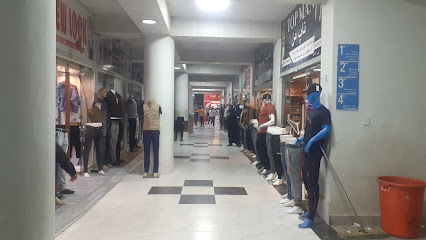
Naaz Boutique Afghani dresses store
Discover the beauty of traditional Afghani dresses at Naaz Boutique, a must-visit clothing store in Kabul's Caravan Mall.
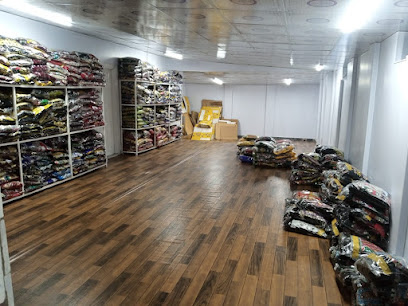
Afghan Mart-Afghanistan's Online Shopping فروشگاه افغان مارت
Explore Afghan Mart, Kabul's vibrant shopping mall offering authentic Afghan crafts, local delicacies, and a unique cultural experience.
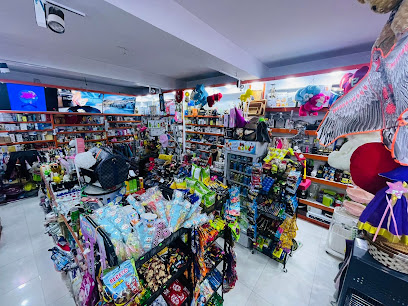
Afghan Turk Center افغان ترک سنتر
Discover the Afghan Turk Center in Kabul for an authentic shopping experience featuring clothing, cosmetics, and unique fashion accessories.
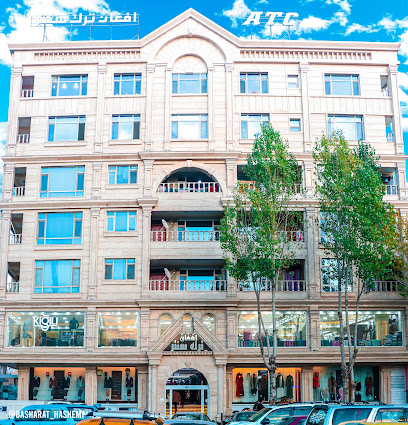
Soholat.com
Explore the vibrant clothing styles of Afghanistan at Soholat in Ansari Square, Kabul – a fashion haven for every traveler.
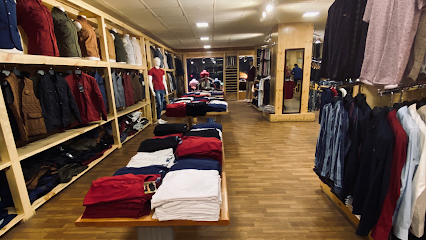
Gifts to Kabul
Explore the essence of Afghanistan through unique gifts and handcrafted treasures at Gifts to Kabul, a premier gift shop in Kabul.
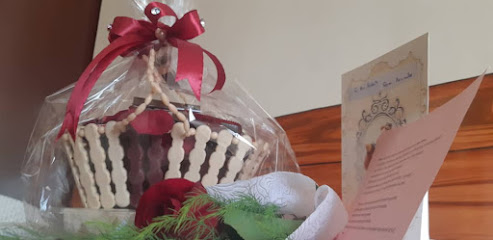
Rahmanian Shopping Center
Explore the Rahmanian Shopping Center in Kabul for a unique shopping experience that blends local culture with a diverse range of retail options.
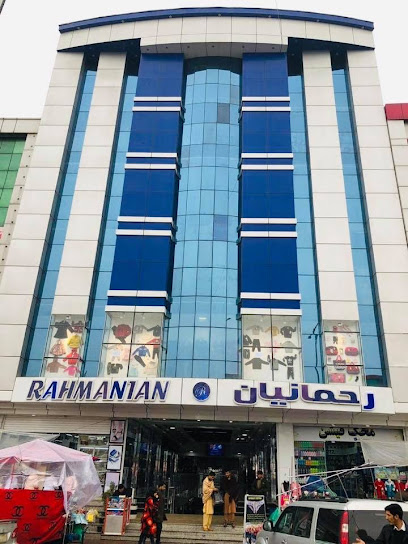
پوشاک استانبول
Explore the rich cultural heritage of Afghan fashion at پوشاک استانبول, offering unique styles and traditional garments in Kabul.
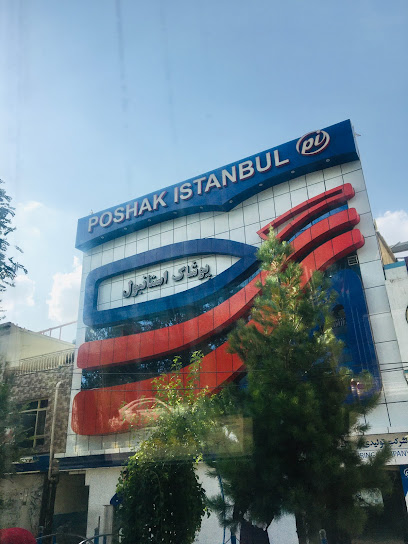
Jama Designing Center
Discover unique Afghan fashion at Jama Designing Center, a vibrant clothing store in Kabul showcasing traditional and contemporary styles.
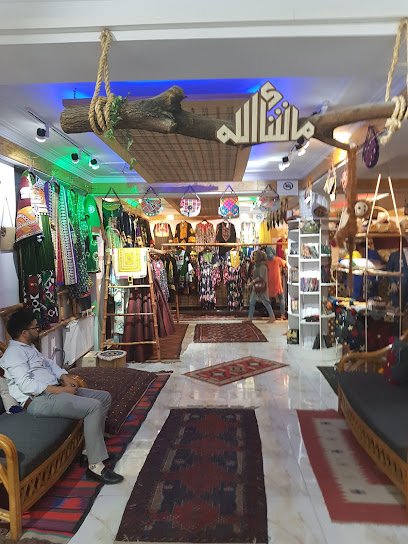
Tujarat.com
Discover a unique blend of local culture and modern retail at Tujarat.com, Kabul's premier shopping destination with diverse stores and delightful dining.
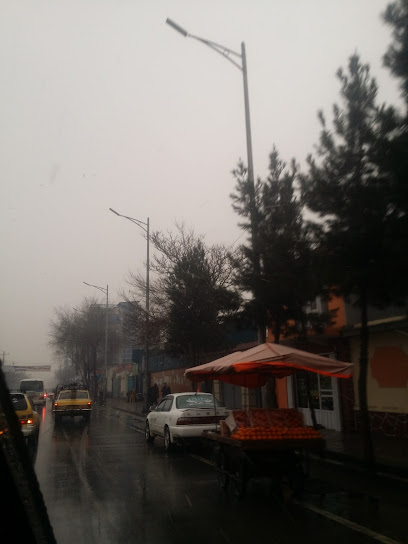
City Mall
Explore City Mall in Kabul – a vibrant shopping destination blending local culture with modern amenities, perfect for tourists seeking adventure and shopping.
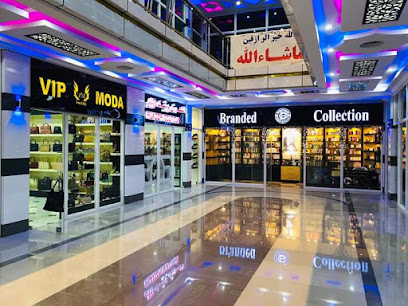
فروشگاه رحيمي Rahimi store
Discover the essence of Afghan fashion at Rahimi Store, where tradition meets modernity in a vibrant shopping experience.
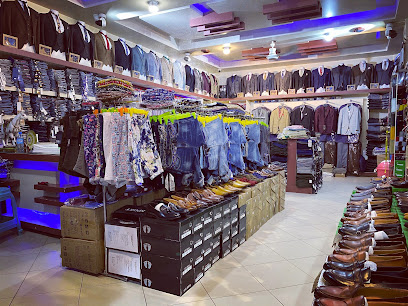
Belawrin
Discover Belawrin, Kabul's premier women's clothing store offering a unique blend of traditional and modern fashion for every occasion.
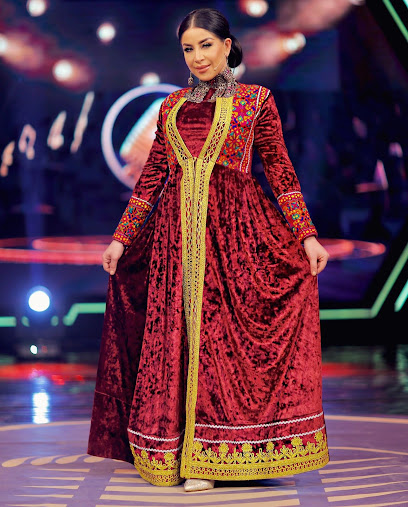
Essential bars & hidden hideouts
حمام حاجي مير احمد
Experience authentic Afghan culture at حمام حاجي مير احمد, a traditional bar in the heart of Kabul offering local drinks and a friendly atmosphere.
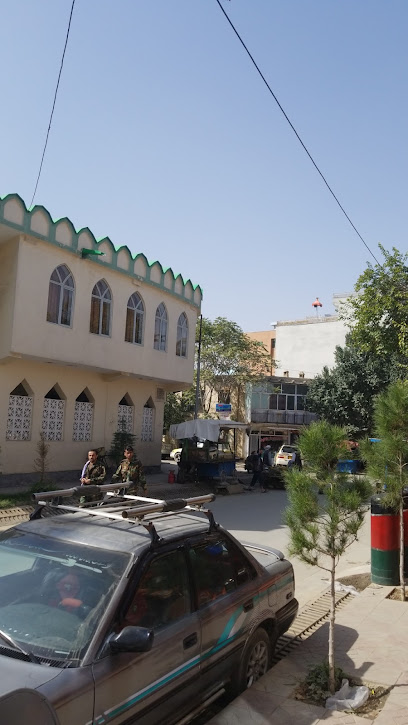
Pol E Campany
Discover the lively atmosphere of Pol E Campany, a vibrant bar in Kabul offering a unique blend of local culture and modern vibes.
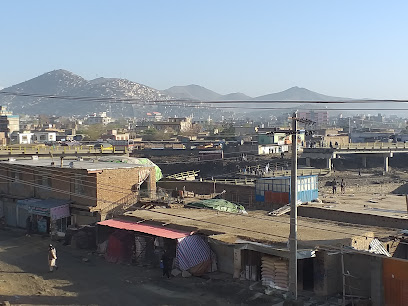
Refuel Juice Bar
Discover Refuel Juice Bar in Kabul, where fresh juices and smoothies rejuvenate your spirit amidst the city's vibrant energy.
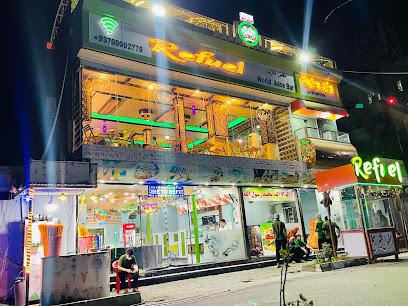
کاکا وحيد برګر پواينټ
Experience the vibrant flavors of Afghanistan at Kaka Wahid Burger Point, where delicious burgers meet a lively atmosphere in the heart of Kabul.
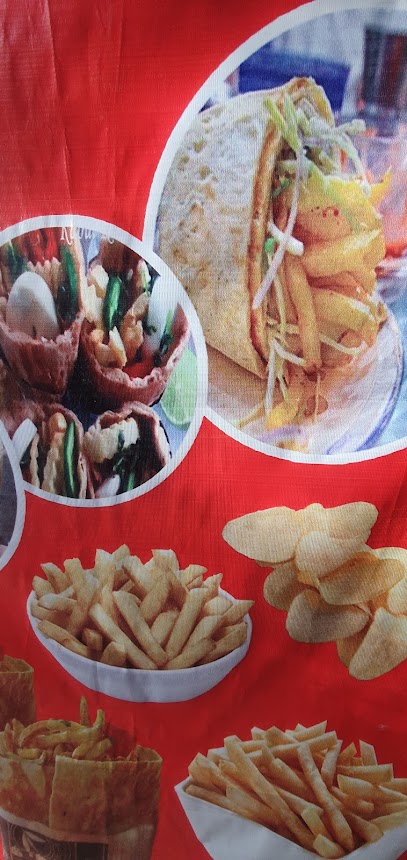
Kabul Folad Co LTD
Discover the vibrant ambiance of Kabul Folad Co LTD, a bar where local culture meets the joy of unwinding in the heart of Kabul.

رستوران روسها-Russia Restaurant
Discover the rich flavors of grilled cuisine at Russia Restaurant in Kabul, a delightful culinary experience that embodies Afghan hospitality.

Alfa blast
Experience Kabul's nightlife at Alfa Blast, a popular bar in Kart-e-Say offering a vibrant atmosphere and exceptional service.

باغ فهیم
Experience the unique blend of traditional Afghan hospitality and modern comfort at باغ فهیم, a charming bar in the heart of Kabul.

صیاد
Discover the lively ambiance of صیاد, a popular bar in Kabul offering a unique blend of Afghan hospitality and vibrant nightlife.
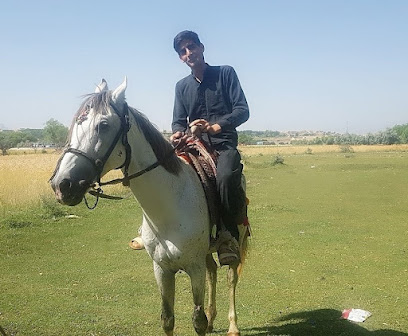
آیسکریم خانه مسجدی
Discover the delightful flavors of آیسکریم خانه مسجدی, a charming ice cream parlor in Kabul blending local ingredients with sweet indulgence.

yasir super store
Discover the warm hospitality and unique Afghan beverages at Yasir Super Store, a charming bar in Kabul's Deh Sabz, perfect for tourists and locals alike.

Reeas
Discover a lively karaoke experience in Kabul at Reeas, where music, culture, and entertainment come together for an unforgettable night.

Khalifa
Discover the vibrant atmosphere of Khalifa, a lively bar in Kabul, offering a unique blend of local culture and international drinks.

Lvk
Experience the vibrant nightlife of Kabul at Lvk, a cozy bar in Dasht-e-Barchi offering a mix of local and international flavors.

Local Phrases
-
- Helloسلام
[salam] - Goodbyeخداحافظ
[khuda hafiz] - Yesبله
[bale] - Noنه
[na] - Please/You're welcomeلطفا
[lotfan] - Thank youتشکر
[tashakur] - Excuse me/Sorryببخشید
[bebakhshid] - How are you?چطورید؟
[chetorid?] - Fine. And you?خوبم. شما؟
[khobam. shoma?] - Do you speak English?آیا انگلیسی حرف میزنید؟
[aya englisi harf mizanid?] - I don't understandمتوجه نمیشم
[motajeh nemisham]
- Helloسلام
-
- I'd like to see the menu, pleaseلطفا منو بیاورید
[lotfan menu biavared] - I don't eat meatگوشت نمیخورم
[gosht nemikhoram] - Cheers!سلامتی!
[salamati!] - I would like to pay, pleaseلطفا پرداخت کنم
[lotfan pardakht konam]
- I'd like to see the menu, pleaseلطفا منو بیاورید
-
- Help!کمک!
[komak!] - Go away!برو!
[boro!] - Call the Police!پلیس را صدا کنید!
[polis ra seda konid!] - Call a doctor!دکتر را صدا کنید!
[doctor ra seda konid!] - I'm lostگم شده ام
[gom shode am] - I'm illبیمار هستم
[bimar hastam]
- Help!کمک!
-
- I'd like to buy...میخواهم بخرم...
[mikhaham bekharam...] - I'm just lookingفقط نگاه میکنم
[faqat negah mikonam] - How much is it?قیمتش چقدر است؟
[ghimatash chand ast?] - That's too expensiveخیلی گران است
[kheili geran ast] - Can you lower the price?میتوانید قیمتش را کم کنید؟
[mitavanid ghimatash ra kam konid?]
- I'd like to buy...میخواهم بخرم...
-
- What time is it?ساعت چند است؟
[saat chand ast?] - It's one o'clockیک ساعت است
[yek saat ast] - Half past (10)نیمه (ده)
[nime (dah)] - Morningصبح
[sobh] - Afternoonبعد از ظهر
[ba'd az zohr] - Eveningشام
[sham] - Yesterdayدیروز
[dierooz] - Todayامروز
[emrooz] - Tomorrowفردا
[farda] - 1یک
[yek] - 2دو
[do] - 3سه
[se] - 4چهار
[chahar] - 5پنج
[panj] - 6شش
[shesh] - 7هفت
[haft] - 8هشت
[hasht] - 9نه
[noh] - 10ده
[dah]
- What time is it?ساعت چند است؟
-
- Where's a/the...?...کجاست؟
[...kojast?] - What's the address?آدرس چیست؟
[adres chist?] - Can you show me (on the map)?میتوانید به من نشان دهید؟
[mitavanid be man neshan dahid?] - When's the next (bus)?بعدی (اتوبوس) کی است؟
[badi (otobus) key ast?] - A ticket (to ....)یک بلیت (به ...)
[yek bilit (be ...)]
- Where's a/the...?...کجاست؟
History of Kabul
-
Kabul's history stretches back more than 3,500 years. It is believed to have been founded by the Aryan tribes who migrated from Central Asia. The city is mentioned in the Rigveda, one of the oldest texts in the world, indicating its significance even in ancient times.
-
In the 6th century BCE, Kabul became part of the Achaemenid Empire under Cyrus the Great. The city served as a vital trade and cultural hub within the empire, linking it with India and Central Asia.
-
During the 1st to 3rd centuries CE, Kabul was a major center of Buddhist culture. The region was dotted with monasteries and stupas, and it played a crucial role in the spread of Buddhism to Central and East Asia.
-
In the 3rd century CE, Kabul came under the control of the Sassanian Empire. Later, it was captured by the Hephthalites, a nomadic confederation that ruled large parts of Central Asia and South Asia.
-
In the 7th century, Kabul was conquered by the Rashidun Caliphate and subsequently became part of the Islamic world. The city saw the construction of numerous mosques and madrasas, marking the beginning of its Islamic architectural heritage.
-
During the 10th and 11th centuries, Kabul was part of the Ghaznavid Empire. This period saw significant urban development, including the construction of fortifications, palaces, and mosques. The city also became a center for Persian culture and literature.
-
In the 16th century, Kabul was captured by the Mughal Emperor Babur. The city became one of the primary residences of the Mughal court, and Babur's garden in Kabul is one of the most famous historical sites from this era.
-
In the 18th century, Ahmad Shah Durrani established the Durrani Empire, with Kabul eventually becoming its capital. This period marked the beginning of modern Afghanistan, and Kabul played a crucial role in the country's political and cultural life.
-
During the 19th century, Kabul was a focal point in the Anglo-Afghan Wars. The city witnessed significant conflict and political upheaval during these wars as British forces sought to extend their influence in the region.
-
In the early 20th century, Kabul underwent significant modernization under King Amanullah Khan. The city saw the construction of new roads, schools, and hospitals, as well as increased efforts to promote education and women's rights.
-
From 1979 to 1989, Kabul was occupied by Soviet forces during the Soviet-Afghan War. The city experienced extensive damage and upheaval during this period, with significant impacts on its infrastructure and population.
-
In the late 1990s, Kabul came under the control of the Taliban regime. The city experienced strict implementation of Sharia law and significant restrictions on cultural and social activities, leading to widespread hardship for its residents.
-
Following the US-led invasion in 2001, Kabul entered a period of reconstruction and development. International aid and investment led to the rebuilding of infrastructure, schools, and hospitals, although the city continued to face challenges related to security and governance.
Kabul Essentials
-
Kabul is accessible via Hamid Karzai International Airport (KBL), which is the primary international gateway to Afghanistan. Various international airlines operate flights to Kabul from major cities in the Middle East, South Asia, and Europe. Overland travel is possible but not recommended due to security concerns. If you choose this route, be aware of the risks and ensure you have the necessary permits and documentation.
-
Within Kabul, you can get around using taxis, buses, and private cars. Taxis are a common mode of transport, but it's advisable to agree on a fare before starting your journey. Ride-hailing services like Uber are not available, but local apps like 'Buber' may be used. Public buses are available but can be crowded and less reliable. For short distances, walking is feasible in some parts of the city, but always remain cautious of your surroundings.
-
The official currency in Afghanistan is the Afghan Afghani (AFN). Credit cards are not widely accepted, so it is advisable to carry cash. ATMs are available but may not always be reliable, so withdraw sufficient cash when you can. Major hotels and some high-end restaurants may accept US dollars. Currency exchange services are available at the airport and in various parts of the city.
-
Kabul has areas with high crime rates, particularly crimes targeting tourists. It is essential to stay updated on current security advisories. Avoid areas like Kabul's Old City and certain districts such as Qargha, which have higher crime rates. Always remain vigilant, avoid traveling alone, especially at night, and keep your belongings secure. It is advisable to hire a local guide or use reputable tour operators for your safety.
-
In case of emergency, dial 119 for police assistance and 112 for medical emergencies. Kabul has several hospitals, including the French Medical Institute for Mothers and Children (FMIC) and the Emergency Hospital. Ensure you have travel insurance that covers medical emergencies. Familiarize yourself with the location of your country's embassy or consulate in Kabul for further assistance.
-
Fashion: Do dress modestly; women should consider wearing a headscarf and men should avoid shorts. Religion: Do respect Islamic customs, including prayer times and fasting during Ramadan. Public Transport: Do be respectful and avoid eating or drinking on public transport. Greetings: Do greet people with 'Salaam' (peace) and a handshake; men should wait for a woman to extend her hand first. Eating & Drinking: Do try local dishes like Kabuli Pulao but avoid eating with your left hand; it's considered impolite.
-
To experience Kabul like a local, visit the Chicken Street for traditional Afghan crafts and souvenirs. Engage with locals at Kabul's bazaars, and don't miss a visit to Babur's Gardens for a peaceful retreat. Try local eateries for authentic Afghan cuisine. Learning a few basic phrases in Dari or Pashto can go a long way in making connections with locals.
Trending Landmark in Kabul
-
Kabul Zoo
-
Babur Garden
-
Pul-e Kheshti Mosque
-
Safi Landmark Hotel
-
DarulAman Palace
-
The National Museum of Afghanistan
-
Kabul City Center
-
Zohak Village
-
Shah e Du shamshira Mosque
-
Qargha Reservoir
-
Qale'H-Ye-Balahissar
-
تالار عروسی ماریوت (Marriot Wedding Hall)
-
مسجد جامع سفید زاخیل ها
-
OMAR Mine ERW War Museum
-
Kabul Fortress
Nearby Cities to Kabul
-
Things To Do in Peshawar
-
Things To Do in Chitral
-
Things To Do in Swat
-
Things To Do in Mazar-i-Sharif
-
Things To Do in Islamabad
-
Things To Do in Rawalpindi
-
Things To Do in Abbottabad
-
Things To Do in Murree
-
Things To Do in Kaghan
-
Things To Do in Naran
-
Things To Do in Vahdat
-
Things To Do in Dushanbe
-
Things To Do in Tursunzoda
-
Things To Do in Gilgit
-
Things To Do in Faisalabad

















